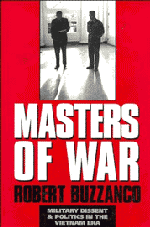Book contents
- Frontmatter
- Contents
- Acknowledgments
- List of Abbreviations
- 1 Introduction: Losing Battles and Winning Wars
- 2 Prologue to Tragedy: U.S. Military Opposition to Intervention in Vietnam, 1950–1954
- 3 Preparing for and Avoiding War: Military Affairs and Politics in Vietnam and the United States, 1955–1960
- 4 Pinning Down the President: JFK, the Military, and Political Maneuvering over Vietnam, January-October 1961
- 5 The Best and Worst of Times: The U.S. War against Vietnam, October 1961–November 1963
- 6 “Seeing Things Through in Vietnam”: LBJ, the Military, and the Growing U.S. Commitment to Vietnam, November 1963-December 1964
- 7 Hope for the Best, Expect the Worst: U.S. Ground Troops Enter the Vietnam War, January-July 1965
- 8 War on Three Fronts: U.S. Forces versus the Viet Cong, Westmoreland versus the Marines, and Military Leaders versus the White House, July 1965-December 1966
- 9 “The Platform of False Prophets Is Crowded”: Public Hope and Private Despair in Vietnam, 1967
- 10 The Myth of Tet: Military Failure and the Politics of War
- 11 Conclusion: Bringing It All Back Home
- Epilogue: “This Is a Real War”: Military Dissent and Politics after Vietnam
- Bibliography
- Index
9 - “The Platform of False Prophets Is Crowded”: Public Hope and Private Despair in Vietnam, 1967
Published online by Cambridge University Press: 05 August 2012
- Frontmatter
- Contents
- Acknowledgments
- List of Abbreviations
- 1 Introduction: Losing Battles and Winning Wars
- 2 Prologue to Tragedy: U.S. Military Opposition to Intervention in Vietnam, 1950–1954
- 3 Preparing for and Avoiding War: Military Affairs and Politics in Vietnam and the United States, 1955–1960
- 4 Pinning Down the President: JFK, the Military, and Political Maneuvering over Vietnam, January-October 1961
- 5 The Best and Worst of Times: The U.S. War against Vietnam, October 1961–November 1963
- 6 “Seeing Things Through in Vietnam”: LBJ, the Military, and the Growing U.S. Commitment to Vietnam, November 1963-December 1964
- 7 Hope for the Best, Expect the Worst: U.S. Ground Troops Enter the Vietnam War, January-July 1965
- 8 War on Three Fronts: U.S. Forces versus the Viet Cong, Westmoreland versus the Marines, and Military Leaders versus the White House, July 1965-December 1966
- 9 “The Platform of False Prophets Is Crowded”: Public Hope and Private Despair in Vietnam, 1967
- 10 The Myth of Tet: Military Failure and the Politics of War
- 11 Conclusion: Bringing It All Back Home
- Epilogue: “This Is a Real War”: Military Dissent and Politics after Vietnam
- Bibliography
- Index
Summary
The significant point is that no professional military man, not even the Chairman of the JCS, was present at these [Tuesday policy] luncheons until late in 1967. This omission, whether by the deliberate intent or with the indifferent acquiescence of Secretary McNamara, was in my view a grave and flagrant example of his persistent refusal to accept the civilian–military partnership in the conduct of our military operations.
U. S. G. SharpDespite foundering efforts in the field, interservice dissension, and an emerging political crisis in the United States, American officials did not fundamentally reevaluate the war in 1967. The White House continued to hope for the best in Vietnam while trying to rein in the military's repeated requests for more soldiers and a wider war. For their part, Westmoreland, Wheeler, and other officers kept forwarding optimistic projections of the war despite continued bleak reports on conditions in the RVN. The ARVN was passive and seemed to be allowing U.S. troops to carry the burden of the fight, they suggested, while the enemy infiltrated and recruited despite American firepower, still determined the scale and nature of engagements, and could be expected to prolong the war to its advantage. Pacification was not going well, U.S. officers added, and their principal response, the air war, was not making a decisive impact.
- Type
- Chapter
- Information
- Masters of WarMilitary Dissent and Politics in the Vietnam Era, pp. 275 - 310Publisher: Cambridge University PressPrint publication year: 1996



